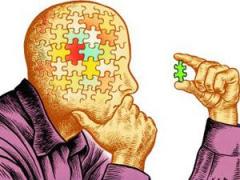When examining the ideals of the Enlightenment and Romanticism, I feel that one should not choose one perspective to adhere to, but rather a combination of the two. The Enlightenment perspective places value on thought and reasoning as it examines how other point of views and the role individuals play in the greater scheme of society. On the other hand, Romanticism places its value on the subjectivity of emotions and imagination where the individual’s experiences are explored such as dreams and desires. It also places a great emphasis on the relationship between the individual and nature. I believe a combination of these two perspectives is best because the Enlightenment ideals push the individual to consider reason when conducting themselves and Romanticism makes sure that we do not lose the essence of our natural, true selves.
Learning about both perspectives has impacted the way I view contemporary western culture today. When I examine the culture today, I can see that everyone tries to base their lives and decisions to be acceptable to society. For example, students pick their majors due to the importance of money as a necessity and the drive for human progression. This aligns with the Enlightenment ideals as reason and progression of human beings gears the individual and society to be shaped a certain way. Although this is true, I see some of the Romantic ideals too coming from examples such as YouTube. YouTube is a platform that allows individuals to show the world who they are and share their life experiences with others. This has impacted my view as I see that there is a way to align with the Romantic ideas but the Enlightenment ideal of reason proves a difficult contender for individualism.
The most interesting takeaway from this class for me was seeing how much the perspectives clashed though they both were rebellions against religion. Enlightenment and Romanticism ideals shared a similar opponent but their motivations did not align so well. It shows that preference and motivation plays into how an individual goes about in their life and in making their decisions.



